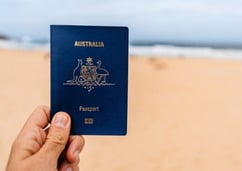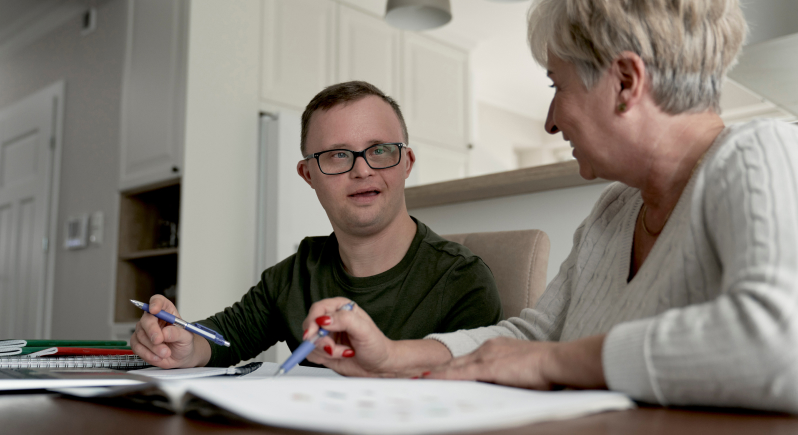Family law can be a challenging practice area at times. People undergo considerable emotional stress after a relationship breakdown. As a family lawyer, your role is to help clients navigate the way forward while also providing non-legal advice about other support services, particularly for clients who may have experienced trauma or domestic violence.
We spoke to family lawyer and College of law expert Kathryn Kearley about a range of family law resources, from bench books to trauma-informed practice guides. These tools can assist family lawyers in navigating complex cases, particularly when dealing with matters involving domestic violence, trauma, and vulnerable clients.
The National Domestic and Family Violence Bench Book: A Comprehensive Guide
The Australian Institute of Judicial Administration (AIJA) publishes an excellent online resource, the National Domestic and Family Violence Bench Book (NDV Bench Book). It is supported by the Attorney-General's Department and the University of Melbourne.
This comprehensive resource is designed not only for the judiciary but also for legal professionals, and other service providers. What makes the Bench Book particularly valuable is its multi-jurisdictional approach and extensive coverage of legal topics relevant to family law practice.
“The NDV Bench Book gives structured insight into considerations that are relevant in determining many legal issues,” Kathryn says. “It covers aspects such as the dynamics of domestic and family violence, fair hearing and safety protocols, evidence issues and perpetrator interventions.”
The NDV Bench Book is freely accessible here, making it a cost-effective addition to any family lawyer's toolkit.
Trauma-Informed Resources: Enhancing Client Support
Family lawyers frequently work with clients who experienced trauma, yet some practitioners may lack specialised knowledge about trauma. Two standout resources can help bridge this gap: Phoenix Australia's "Helping Others" guide and the Blue Knot Foundation's fact sheets.
Phoenix Australia provides evidence-based resources on supporting those who experienced trauma. Their "Helping Others" section offers practical guidance on how to appropriately respond to and assist individuals dealing with trauma—knowledge that can be invaluable when working with clients.
Similarly, the Blue Knot Foundation offers comprehensive fact sheets covering various aspects of trauma and recovery. These resources can help lawyers better understand their clients' experiences and needs, leading to more effective representation.
“Family lawyers act for and against clients who experienced trauma, be it in their past relationship or in their childhood,” Kathryn says. “Lawyers also experience trauma in their own professional and personal lives and acting for clients encountering traumatic circumstances can be traumatic for a lawyer. It is essential for the lawyer to have the knowledge to practise law in a trauma-informed way and also be able to manage the trauma they encounter.”
Another significant resource in this domain is the Bugmy Bar Book, which provides evidence-based materials on factors that may contribute to criminal offending. While primarily developed for criminal law sentencing, the insights this bar bool offers regarding disadvantage and trauma can be relevant in family law matters, particularly those involving allegations of family violence or child abuse.
State-Specific Legal Aid Resources: Practical Tools for Every Jurisdiction
Each state and territory's Legal Aid Commission offers specialised family law resources that can provide jurisdiction-specific information and practical tools.
* Legal Aid NSW provides extensive family law resources including on domestic and family violence here.
* Queensland practitioners can access a wide range of publications and resources through Legal Aid Queensland's comprehensive collection here.
* Victoria Legal Aid offers family law trial practice tools that can assist practitioners in preparing for court appearances and managing cases effectively.
* In Western Australia, Legal Aid WA provides informative fact sheets covering various family law topics here.
* Northern Territory practitioners can benefit from Legal Aid NT's "Moving Beyond Family Conflict" resources.
* The Legal Services Commission of South Australia offers dedicated family law resources, while Tasmania Legal Aid provides focused materials on the best interests of the child.
Make the most of these freely available resources
“The various legal aid commissions publish a myriad of resources for lawyer and clients,” Kathryn says. “The resources are easy to follow and written in plain language, saving the need to 'reinvent the wheel’, especially when used in conjunction with the excellent facts sheets and brochures on the Federal Circuit and Family Court website: Resources | Federal Circuit and Family Court of Australia. Client resources are in many community languages. These resources are particularly useful for lawyers who undertake pro bono work at community legal centres.”
These jurisdiction-specific resources are valuable for all practitioners regardless of whether they undertake legal aid work or pro bono work.
From experienced family lawyers to being new in the field, these resources can significantly enhance your knowledge and skills in practice to help you support your clients during the resolution of their family law case.





























![How to handle Direct Speech after Gan v Xie [2023] NSWCA 163](https://images4.cmp.optimizely.com/assets/Lawyer+Up+direct+speech+in+drafting+NSW+legislation+OCT232.jpg/Zz1hNDU4YzQyMjQzNzkxMWVmYjFlNGY2ODk3ZWMxNzE0Mw==)






































































